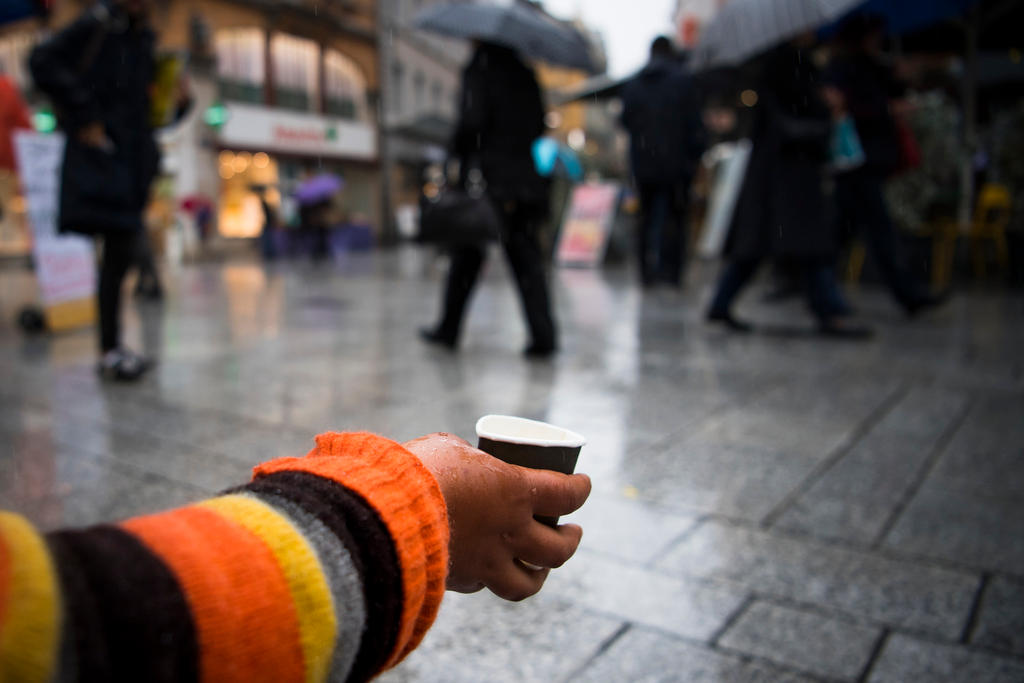
Vaud begging ban to come into force, court confirms

A disputed law banning begging in canton Vaud will indeed come into force, the Swiss Federal Court has confirmed, rejecting an appeal lodged by opponents.
The decision was taken on Thursday by Switzerland’s highest court, which deemed that the move by Vaud authorities was not against the European Convention on Human Rights.
It threw out arguments that the law, which can now come into effect, targets vulnerable individuals and is discriminatory, saying that it works rather to protect those coerced into begging by organised networks.
Opponents of the law, first voted upon by authorities in Lausanne two years ago, had proposed various alternatives to a general ban: for example, specific hours or places where begging would not be deemed illegal, or the issuing of special begging permits.
These were all rejected by the court, which deemed them inadequate responses that would simply move the problem elsewhere rather than solve it.
Mixed response
Xavier Rubli, the lawyer representing the contesting parties, said they were disappointed with the decision, which was “full of short-cuts and clichés”.
“We live in a country that forbids people to sit down and put out their hand,” he told the Keystone-ATS agency. And though reluctant to specify exactly what next steps (an appeal to the European Court of Human Rights is an option), he said that “the fight is not finished”.
On the political side, the Swiss People’s Party, which pushed for the initial vote, welcomed the decision in a statement, saying the law “would ensure an effective battle against this scourge, orchestrated by malevolent networks who exploit vulnerable people”.
As for the Radical-Liberal Pierre-Antoine Hildebrand, in charge of Lausanne’s economics and security department (and thus responsible for implementing the law), he said that no immediate plan of action was in place, but that the first step would be an information campaign to dissuade future offenders.
The law allows for fines of CHF50-100 ($50-100) to be handed down to beggars. Those convicted of organising begging networks risk fines of up to CHF2,000.
In Switzerland, laws and regulations on begging vary according to canton and municipality. In some places, such as Geneva and Zurich, it is already banned, but some doubt whether formal bans work.
Geneva has banned begging since 2008, but there are still hundreds of mainly Roma beggars on the streets.

More
Is begging a human right?

In compliance with the JTI standards
More: SWI swissinfo.ch certified by the Journalism Trust Initiative

















![The four-metre-long painting "Sonntag der Bergbauern" [Sunday of the Mountain Farmers, 1923-24/26] had to be removed by a crane from the German Chancellery in Berlin for the exhibition in Bern.](https://www.swissinfo.ch/content/wp-content/uploads/sites/13/2025/12/01_Pressebild_KirchnerxKirchner.jpg?ver=8f77363a)











You can find an overview of ongoing debates with our journalists here . Please join us!
If you want to start a conversation about a topic raised in this article or want to report factual errors, email us at english@swissinfo.ch.